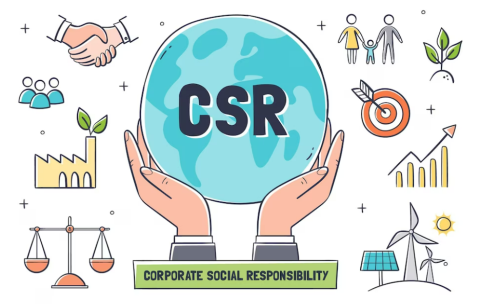Collaboration and Teamwork in Research
Collaboration and Teamwork in Research are essential skills for MBA …
What you'll learn
Module 1: Foundations of Team Collaboration (4 hours)
Session 1.1: Principles of Effective Teamwork (2 hours)
Understanding the dynamics of research teams.
Building trust and establishing clear communication among team members.
Session 1.2: Roles and Responsibilities in Research Teams (2 hours)
Defining roles and distributing tasks effectively.
Managing expectations and contributions of team members.
Module 2: Collaborative Research Methodologies (4 hours)
Session 2.1: Designing Collaborative Research Projects (2 hours)
Planning and structuring research projects for team collaboration.
Setting shared objectives and goals.
Session 2.2: Managing Collaborative Research Efforts (2 hours)
Techniques for coordinating and monitoring progress.
Tools and technologies for collaborative research.
Module 3: Communication and Conflict Resolution (4 hours)
Session 3.1: Communication Strategies in Research Teams (2 hours)
Effective communication methods for sharing ideas and feedback.
Ensuring inclusivity and participation of all team members.
Session 3.2: Handling Conflicts in Research Teams (2 hours)
Strategies for identifying and resolving conflicts.
Fostering a positive and productive team environment.
Module 4: Interdisciplinary and Cross-Cultural Collaboration (4 hours)
Session 4.1: Working in Interdisciplinary Teams (2 hours)
Combining diverse expertise and perspectives in research.
Challenges and best practices in interdisciplinary collaboration.
Session 4.2: Cross-Cultural Collaboration in Research (2 hours)
Navigating cultural differences and expectations in global research teams.
Building cross-cultural understanding and respect.
Module 5: Practical Application and Case Studies (4 hours)
Session 5.1: Collaborative Research Project (2 hours)
Applying learned skills in a team-based research project.
Peer-to-peer feedback and collaborative refinement.
Session 5.2: Analysis of Collaborative Research Case Studies (2 hours)
Reviewing and discussing real-world examples of successful collaborative research.
Lessons learned and key takeaways.
Ethical Leadership and Corporate Governance
Ethical leadership and corporate governance are vital in shaping responsible …
What you'll learn
Module 1: Foundations of Ethical Leadership (4 hours)
Session 1.1: Understanding Ethical Leadership (2 hours)
Introduction to the concept of ethical leadership.
The role of values and ethics in leadership.
Session 1.2: Ethical Decision Making (2 hours)
Frameworks for ethical decision-making in business.
Case studies on ethical dilemmas in leadership.
Module 2: Corporate Governance Principles (4 hours)
Session 2.1: Fundamentals of Corporate Governance (2 hours)
Overview of corporate governance and its importance.
Role of governance in ethical business practice.
Session 2.2: Best Practices in Corporate Governance (2 hours)
Examining best practices and models in corporate governance.
Analysis of governance failures and lessons learned.
Module 3: Building an Ethical Organizational Culture (4 hours)
Session 3.1: Cultivating Ethical Culture in Organizations (2 hours)
Strategies for fostering an ethical workplace.
Role of leaders in shaping organizational culture.
Session 3.2: Ethics, Culture, and Change Management (2 hours)
Managing cultural change towards ethical practices.
Overcoming resistance and embedding ethical values.
Module 4: Corporate Social Responsibility and Sustainability (4 hours)
Session 4.1: CSR and Ethical Leadership (2 hours)
The intersection of CSR and ethical leadership.
Case studies on CSR initiatives and ethical leadership.
Session 4.2: Sustainability and Governance (2 hours)
Integrating sustainability into corporate governance.
Role of governance in promoting sustainable practices.
Module 5: Leadership and Governance in Practice (4 hours)
Session 5.1: Ethical Leadership in Action (2 hours)
Practical application of ethical leadership principles.
Leadership simulation exercises and role-playing.
Session 5.2: Governance and Compliance Scenarios (2 hours)
Analyzing real-world corporate governance scenarios.
Discussions on compliance, ethics, and governance challenges.
Sustainable Business Strategies
Sustainable business strategies integrate environmental and social considerations into business …
What you'll learn
Module 1: Introduction to Sustainable Business (4 hours)
Session 1.1: Principles of Sustainable Business (2 hours)
Understanding sustainability in the business context.
The triple bottom line: People, Planet, Profit.
Session 1.2: Global Sustainability Challenges and Responses (2 hours)
Overview of global sustainability challenges.
Business responses to environmental and social issues.
Module 2: Sustainable Business Models (4 hours)
Session 2.1: Designing Sustainable Business Models (2 hours)
Concepts and frameworks for sustainable business models.
Case studies of successful sustainable businesses.
Session 2.2: Innovation and Sustainability (2 hours)
Role of innovation in driving sustainable practices.
Strategies for integrating sustainability into business innovation.
Module 3: Sustainable Supply Chain and Operations (4 hours)
Session 3.1: Green Supply Chain Management (2 hours)
Principles and practices of sustainable supply chain management.
Impact of supply chain operations on sustainability.
Session 3.2: Sustainable Operations and Production (2 hours)
Implementing sustainable practices in operations and production.
Tools and techniques for reducing environmental impact.
Module 4: Corporate Social Responsibility (CSR) and Stakeholder Engagement (4 hours)
Session 4.1: CSR Strategies and Implementation (2 hours)
Developing and implementing CSR initiatives.
Aligning CSR with business strategy.
Session 4.2: Stakeholder Engagement and Communication (2 hours)
Methods of engaging stakeholders in sustainability efforts.
Communicating sustainability initiatives effectively.
Module 5: Sustainability Reporting and Measurement (4 hours)
Session 5.1: Sustainability Reporting Frameworks (2 hours)
Overview of sustainability reporting and global frameworks.
Best practices in sustainability reporting.
Session 5.2: Measuring Sustainability Performance (2 hours)
Tools and indicators for measuring sustainability performance.
Case studies on sustainability measurement and reporting.
Strategic Communication and Persuasion Skills
Strategic communication and persuasion skills are essential for MBA students …
What you'll learn
Module 1: Foundations of Strategic Communication (4 hours)
Session 1.1: Introduction to Strategic Communication (2 hours)
Understanding the principles and importance of strategic communication.
The role of strategic communication in business and leadership.
Session 1.2: Communication Theories and Models (2 hours)
Exploring key communication theories and models.
Application of these theories in business contexts.
Module 2: Persuasion and Influence Techniques (4 hours)
Session 2.1: Principles of Persuasion (2 hours)
Techniques and psychology of persuasion.
Ethical considerations in persuasive communication.
Session 2.2: Crafting Persuasive Messages (2 hours)
Techniques for developing compelling and persuasive content.
Tailoring messages to different audiences.
Module 3: Effective Communication Channels (4 hours)
Session 3.1: Choosing the Right Communication Channels (2 hours)
Evaluating and selecting effective communication channels.
The impact of digital media on strategic communication.
Session 3.2: Media Relations and Public Speaking (2 hours)
Engaging with the media effectively.
Public speaking and presentation skills for leaders.
Module 4: Communication in Leadership and Crisis Management (4 hours)
Session 4.1: Leadership Communication (2 hours)
Communication styles and strategies for leaders.
Building trust and credibility through communication.
Session 4.2: Crisis Communication (2 hours)
Strategies for effective communication during crises.
Case studies of crisis communication management.
Module 5: Practical Application and Skill Development (4 hours)
Session 5.1: Developing a Strategic Communication Plan (2 hours)
Creating and implementing a strategic communication plan.
Workshop and peer feedback.
Session 5.2: Persuasion in Practice - Role Plays and Simulations (2 hours)
Interactive exercises in persuasive communication.
Role-playing various communication scenarios.










